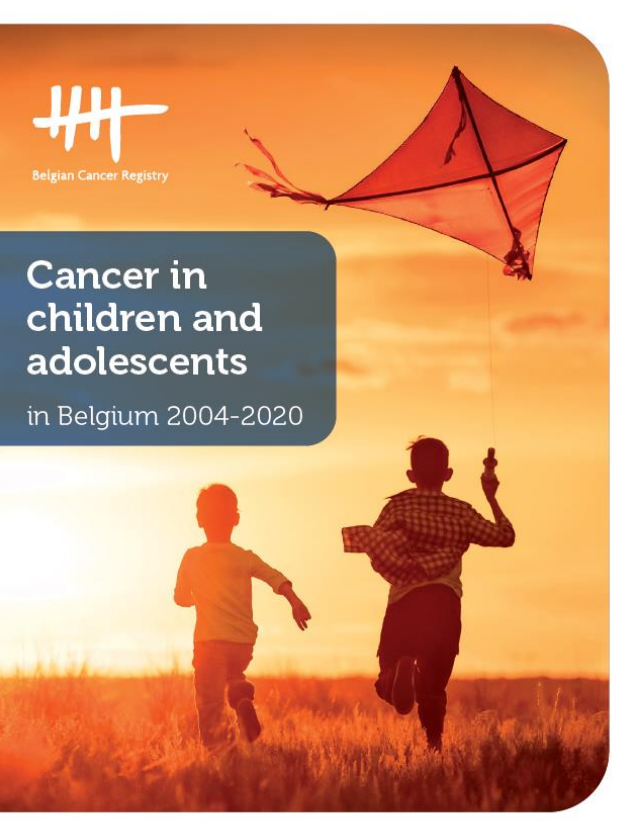
Collaboration between Belgian Cancer Registry (BCR) and the Belgian Society of Paediatric Haematology (BSPHO) has led to important insights into the fight against cancer in children and adolescents. A recent study entitled "Cancer in Children and Adolescents - Belgium 2004-2020" provides an update with 17 consecutive years of incidence data for Belgium, including descriptions of survival data up to 5, 10, and sometimes even 15 years after diagnosis.
Since 2004, these data have been collected nationally through all Belgian pediatric hematology-oncology centers. Since 2018, pediatric cancer stages (Toronto staging system) are also requested to be recorded, which allows us to report epidemiological parameters by stage for the first time. We would therefore like to emphasize our gratitude to all pediatric hematology oncologists, physicians, pathologists and data managers in hospitals for their involvement and ongoing efforts in registering.
In Belgium, childhood cancer accounts for less than 1% of the total cancer burden. Each year, approximately 340 children under 15 years of age and 180 adolescents (between 15 and 19 years of age) are diagnosed with cancer. Unlike in adults, the start of the COVID-19 pandemic in 2020 has not significantly affected this number of annual diagnoses. Results regarding mortality and survival also remain hopeful. Over the past seven decades, mortality rates have declined dramatically for most childhood cancers, and this trend continues. This also reflects improved cancer survival. Children and adolescents with cancer now have a relatively good prognosis. The 15-year survival of children younger than 15 years (83%) is very similar to that of adolescents (86%).
Cancer in children and adolescents differs greatly from cancers in adults, not only in frequency, but also in terms of the specific cancer types, their behavior and response to treatment. It is, more so than in adults, an emotionally charged topic and the cover was chosen for this reason. We hope that advances in survival, as well as the growing scientific understanding of the early and late effects of treatment of childhood and adolescent cancer, will enable these children to enjoy their youth longer and more qualitatively.
We sincerely hope that this work will be useful in the daily professional practice of pediatric hematologists-oncologists and all other experts in the field, and that our findings will generate collaborations for future population-based cancer research. Above all, we hope that it will further boost the quality of care and life for our children and adolescents who - along with their parents and families - are facing a diagnosis of cancer at an early age.
